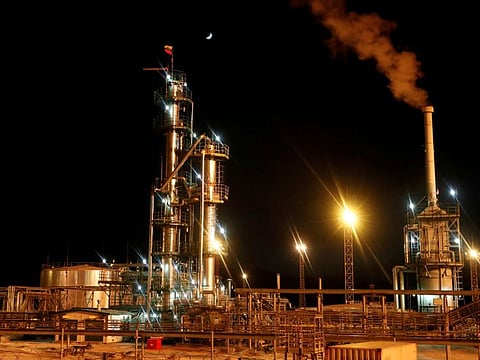Russia lifts diesel-export that battered global markets
Updated regulations are set to free up about 90% of pre-ban seaborne volumes for export

Moscow: Russia allowed a return to seaborne exports of diesel just weeks after imposing a ban that roiled global markets, taking other steps instead to keep sufficient fuel supplies at home.
Shipments can resume provided that the fuel is delivered to the nation’s ports by pipeline, according to a statement on the government’s Telegram account. Such flows to Russia’s western ports account for the bulk of exported volumes.
The move will be a relief to importers after Russia, the single largest seaborne exporter of diesel-type fuels, slapped a near-total ban on deliveries September 21. That followed a surge in domestic fuel costs that stoked inflation - a potential political problem for the Kremlin ahead of March presidential elections.
The ban drove up European prices in an already tight market. Refiners around the world are struggling to produce enough of the fuel after Russia and Saudi Arabia cut supply of crudes rich in diesel, causing inventories to dwindle.
The updated regulations are set to free up about 90 per cent of pre-ban seaborne volumes for export, or some 630,000 barrels a day, according to estimates from Viktor Katona, head crude analyst at market intelligence firm Kpler.
Yet the new rules stipulate that producers must keep at least 50 per cent of their diesel output at home. Taking major exporter Surgutneftegas as an example, the company would need to hold on to around 55,000 barrels of the daily volumes it used to sell abroad, Katona said.
Transneft, Russia’s crude and product pipeline operator, will begin loadings of diesel for seaborne exports in line with new regulations after receiving the necessary documentation from the government, the energy ministry and upon the readiness of oil producers, said Igor Dyomin, spokesman at Russia’s crude and product pipeline operator.
The operator was loading minor diesel cargoes that were exempted from the ban as they were cleared by customs.
The government is also fully restoring its subsidies to refiners to ensure domestic fuel demand is met and refineries get compensation for the difference between prices at home and abroad.
The batch of measures “is so comprehensive that it meets the interests of both consumers and producers,” Vadim Vorobyev, president of Lukoil, Russia’s second-largest oil producer, said on Rossiya 24 state TV. “Let’s hope this package will lead to stabilization of the domestic fuel market.”
Sign up for the Daily Briefing
Get the latest news and updates straight to your inbox



